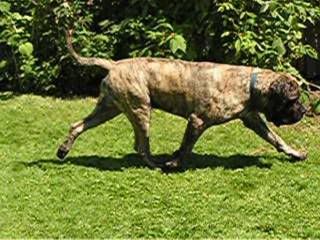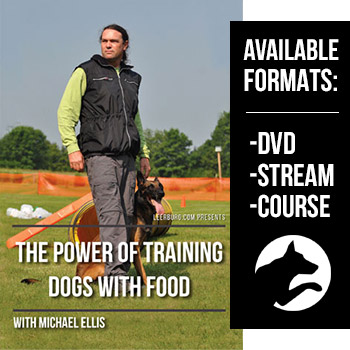I’ve never owned a dog before and I’m very excited.
congratulations! i'm so happy for you. dogs are wonderful friends and companions. but there is a lot to learn! good for you for asking so many questions.
But then I’ve found many sites against the BARF diet.
What helped you decide, as a pet owner, to feed your dog the BARF diet?
my own direct experience with it. i had a dog who was very sickly, continuous eye and ear infections, rotted gums. the vet wanted to pull all his teeth! said he had an autoimmune disorder. he was in and out of the vet's office sometimes twice a week. and he was only two years old.
he also stank, his poop stank, he was unthrifty (wasn't getting nutrition from his food), had horrible gas, bad breath, greasy coat.
but i also wasn't interested in feeding raw. too expensive, too much trouble, and maybe too dangerous.
i got interested in buying a puppy from a breeder who requires you to feed raw. she said she wasn't going to try to convince me, but she asked me a few questions: how was my dog's health? how did he smell? was his coat greasy? etc. etc. etc. described my dog to a t.
so on my own i came up with the idea that i would try the diet for two months, just to see how hard it was to do it, and see how my dog did on it, and if it helped him. in two months, her puppies would be ready to go to their new homes, and i'd know if i was willing to commit to BARF.
the breeder thought this was a great idea AND she guided me through the process of switching him over, answering my questions, etc. that was a huge help!
well, after just two weeks on BARF, the change in my dog was so enormous, i knew i would never go back to "dog food." his eyes and ears cleared up. his gums healed. his poop no longer smelled and got smaller and turned white in a few days and dissolved into powder (no more messy cleanup!). we stopped going to the vet, to the point that she started calling saying she missed him and how was he these days?
we did have one setback. i did not understand very well how to feed (there is a steep learning curve!), and i fed my dog some spoiled meat. i didn't understand that you have to feed human grade quality meat, and so butchers and slaugherhouses were always trying to sell me scrap that had gone bad. my dog got food poisoning. i should have known better because the smell of the meat that made him sick made me sick, and i couldn't get the smell off my hands. it was pretty scary, and he had to go to the vet for IV fluids and an anti-emetic.
from that i learned to ALWAYS feed fresh, human grade, inspected meat, and never let a butcher sell you what they've set aside for dogs. once i followed those guidelines, i never had a problem again.
the vet took a look at his teeth while he was there and was shocked to see that they no longer needed to be pulled and his gums were beautiful and healthy. she looked at me: "what did you do? brush his teeth really well?" she was incredulous. after all the dog's gums were rotten before!
i hadn't brushed his teeth once. it was the change in diet. he'd only been on BARF about a month at that point. she told me BARF is dangerous. i changed vets and have never looked back.
anyway, long story short, the vibrant new health of what had been a very sickly dog spoke for itself. and i had been feeding this dog very expensive, premium dog food. in his case, there was no substitute for BARF.
She went on to actually call her vet and asked him what he thought and of course he was against it and said dogs could get salmonella and worms from eating raw meat. Is this true?
what's true is that we're too hysterical about bacteria. there is bacteria all over your floors, your doorknobs, in the dirt in your yard. dogs don't react to salmonella like we do. they have a much more acidic stomach. your dog is unlikely to get salmonella if you are feeding fresh or freshly frozen food.
as for worms, yes they can get worms, especially if you feed wild game. however, if you freeze the meat at -20C for ten days, it will kill all the parasites and their eggs. you should do this even if you worm regularly (which isn't a bad idea) because your dog can pass worms on to you. i use a chinese herbal product called phellostatin to worm my dogs on a regular basis and i take it myself as a preventive.
btw, everyone has worms. you can't avoid them. if you've ever had rare meat, you have parasites. if you've ever eaten sushi, you have parasites. they are ubiquitous.
I was going to try to switch her over in about a matter of two weeks. Is this long enough or will she need more time?
there is no need to do this gradually. part of the BARF diet is to let the dog fast one day a week, so her system can rest. so what you do is fast her for 24 hours. then start her on raw chicken necks from which all fat and skin have been removed. (fat and skin are hard for them to handle at first). feed the raw chicken necks for a few days. after she's doing well on this, you can start adding more cuts of different kinds of meats. eventually, when she's handling the diet well, you can gradually add back in the fat and skin on the chicken.
cottage cheese mixed with a whole raw egg, and plain canned pumpkin mixed with an egg and some plain unsweetened yogurt are also good transitional foods.
I’ve been reading about the different types of meet to feed. The most that appeal to me is plain chicken wings, hamburger meat, and canned salmon fish. Are these okay?
they are fine, but you need to feed as much variety as possible, and what you can feed will depend on what is available in your area. i also feed pork necks, lamb necks, turkey necks, turkey wings, whole chickens, lamb riblets, beef rib bones, pork loins when on sale, quartered whole turkeys, beef hearts, beef kidney, lamb hearts, etc. etc. etc.
basically, your biggest challenge is finding a reliable and convenient supplier. i go to the meat counter at the local supermarket and get whatever "off cuts" are on sale or cheap. remember, they must be human grade! don't feed the stuff they were throwing out because it spoiled! and if it smells bad, don't feed it!
re veggies. i used to make up big batches of veggies and freeze them but i quit doing this because it was too much work. now we just save the cuttings, peelings, leftover veggies from our own meals, grind them up in a blender with a whole egg and egg shell, some powdered sea kelp, some fish oil capsules, and whatever greens happen to be in the garden that week, and serve mixed with canned salmon or hamburger or beef heart and cottage cheese or yogurt (unsweetened). basically, leftovers. i've never bought veggies, you can get the imperfect ones for free from the supermarket (the stuff for compost). or if you only have one dog, you'll have enough stuff left over from your own cooking without having to buy anything.
you must grind up the veggies in a blender. and don't feed more often than once or twice a week. also make sure he gets organ meats once or twice a week.
A concern I have about feeding chicken bones, is will they be to hard?
no. uncooked bones that are not weight bearing (necks, spines, wings, etc.) are soft, edible, and digestible. this is an irrational fear people have.
apple cider vinegar is a good thing to add to your veggie mix, if your dog finds it palatable.
for entertaining i give my dog a huge nylabone. i don't like kongs, they are messy. and my dogs aren't interested in them either. every dog is different. you'll have to experiment to see what your dog likes.
My husband seems to be concerned with the raw meat and the puppy soon craving blood and raw meat and maybe biting one of our children. Is this a problem with BARF fed dogs?
good grief, no! if anything a dog fed on BARF is going to be healthier, therefore will feel better, therefore will have less aggression because he's in a better mood. don't you get cranky when you don't feel well? dogs can be the same.
i wrote this before reading the rest of the posts, so hope i wasn't too redundant.
feel free to ask more questions, and good luck with your new pup! <img src="/ubbthreads/images/graemlins/smile.gif" alt="" />

working Mastiff
 Previous Topic
Previous Topic Index
Index Next Topic
Next Topic











 Top
Top

.jpg)


